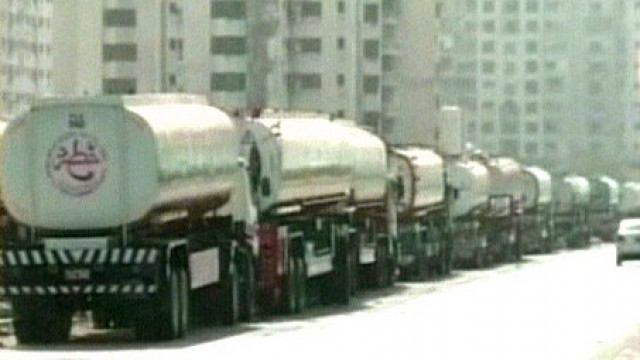Allegation: Senate panel accuses IPPs of oil theft
Seeks reply from NEPRA, summons NAB officials in next huddle

Seeks reply from NEPRA, summons NAB officials in next huddle
PHOTO: FILE
The Senate Standing Committee on Energy, which met under the chairmanship of Muhammad Azam Khan Musa Khel, also summoned representatives of the National Accountability Bureau (NAB) in its next meeting on oil theft.
Difficulty In Business: Govt urged for uniform energy prices
The committee noted that five IPPs including Nishat Power, Nishat Chunian, Atlas Power, Lalpir Power and Liberty Power had been involved in fraud relating to freight cost of furnace oil since 2011.
They were of the view that the power plants were denying consumers relief of Rs2,000 to Rs3,000 per ton and all record was available with the Oil Companies Advisory Council (OCAC), which comprises refineries and oil marketing companies (OMCs).
Committee members suggested that NAB could be directed to probe the record after hearing arguments of the power-sector regulator - the National Electric Power Regulatory Authority (Nepra).
They observed that some oil marketing companies like Hascol, Bakri Energy, Attock Petroleum and others were also allegedly involved in freight fraud.
Challenging the claim of PML-N’s government that it had substantially reduced electricity load-shedding, the committee chairman said consumers were still enduring 18-hour-long outages.
Responding to that, Power Division Minister Awais Ahmed Khan Leghari pointed out that the government had devised a formula for implementing its load-shedding plan. There was no load-shedding in areas where line losses stood at zero whereas the areas where losses were above 10% were facing a few hours of outages, he clarified.
Power Division takes notice of deliberate delay in PPIB-AEDB merger
In Balochistan, he added, tube wells for watering the crops were consuming a large amount of electricity, prompting the government to make plans for shifting them to solar energy.
The committee also took up the matter of electricity overbilling and collection of TV licence fee through electricity bills from mosques. However, the chief of Pakistan Electric Power Company dismissed the allegation.
Published in The Express Tribune, February 21st, 2018.
Like Business on Facebook, follow @TribuneBiz on Twitter to stay informed and join in the conversation.


















COMMENTS
Comments are moderated and generally will be posted if they are on-topic and not abusive.
For more information, please see our Comments FAQ